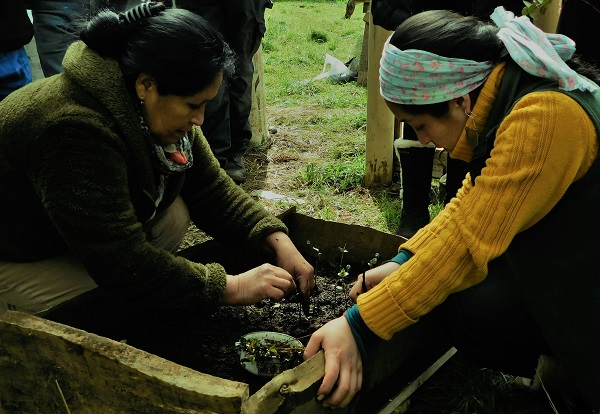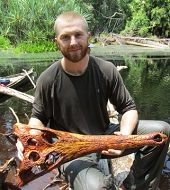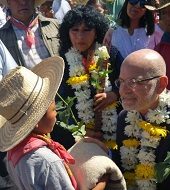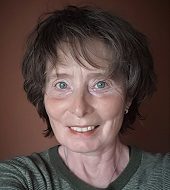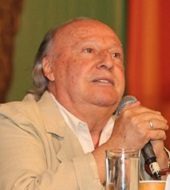First published on 11/23/2020, and last updated on 09/25/2023
The ICCA Consortium Membership Committee is pleased to announce that the review period for the third group of ICCA Consortium Member applications and Honorary member nominations for 2020 has ended, and no objections have been made to these within the 30-day period. The following organisations are therefore joining the current Members:
New MEMBERS: Indigenous peoples’ and community organisations, federations, networks and movements
Asociación Ambiental Budi Anumka is a Indigenous peoples non-profit organisation for members of Mapuche-Lafkenche communities to strengthen local self-governance and biodiversity protection in their ancestral territory near Budi Lake in Chile. (Cover picture © Asociación Ambiental Budi Anumka)
Asociación de Comunidades Territorio Williche is composed of 4 Indigenous communities (Pu Wapi, Antunen Rain, Fotem Mapu and Aliwen) in West Patagonia, Chile, who are struggling to establish marine protected areas to fight the threat of a growing salmon industry presence.
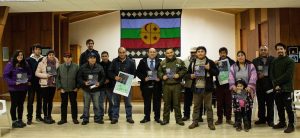
© Asociación de Comunidades Territorio Williche.
Central Indígena de Comunidades Originarias de Lomerio (CICOL) – legally represents 29 Monkoxi Indigenous communities who aim to regain control over 260.000 hectares of collective property and gain wider recognition as an autonomous Indigenous Nation. CICOL works to strengthen its self-governance and the sustainable management of its territory, revitalising culture, language, history and traditional medicine.
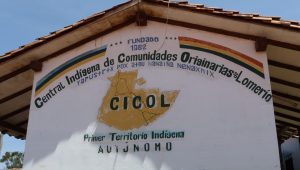
“First autonomous Indigenous territory” CICOL © Iokiñe Rodríguez.
Nacionalidad Achuar Ecuador (NAE) is one of the 14 Indigenous Nations living in the Ecuadorian Amazon. Through eco-tourism, non-timber forest production, and self-governance institutions, they have protected and defended 95% of the forests in its 700.000 hectares shared by more than 12.000 inhabitants.
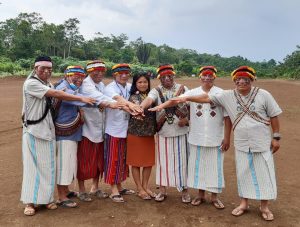
Members of the current Governing Council of the NAE © Tiyua Napoleón Uyunkar
Nagaland Community Conserved Areas Forum (NCCAF) is a forum of 25 community-conserved areas and 80 villages from Nagaland State in India. NCCAF provides a platform where its members can share their experiences, learn from their peers, and advocate for Indigenous peoples’ rights and biodiversity protection.
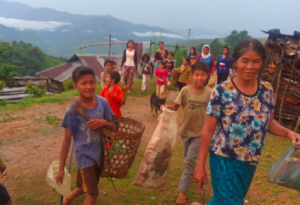
Women and children collecting plastics at Shathuya CCA to mark the World Environment Day © Shathuya CCA
Pastoral Women Alliance (Pahel Foundation) is a grassroots organisation of over 3000 pastoralist women from villages across Gujarat, India who decided to create their own organisation to address common issues such as re-establishing women’s traditional status in public and private spheres, ensuring biodiversity conservation and preserving common resources.
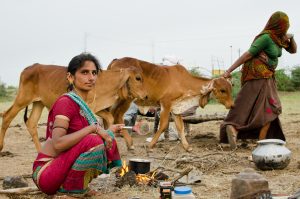
Panchal Maldhari women ©Pastoral Women Alliance
Unama’ki Institute for Natural Resources (UINR) represents the 5 Indigenous Mi’kmaw communities of Unama’ki (see video). UINR works closely with the government and other First Nations organisations in Canada to provide resources for the Mi’kmaw to have equal participation in natural resource management in Unama’ki and its traditional territory.
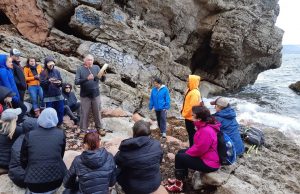
UINR staff person, Clifford Paul ©UINR
New MEMBERS: Civil society and non-governmental organisations, networks with mixed composition and non-governmental research institutions
Agency for Development Initiatives (ADI) is a non-profit organisation that facilitates and supports local communities’ initiatives towards seed and food sovereignty in remote and mountain regions of Kyrgyzstan. The organisation has a strong focus on women’s empowerment, school farms, and revitalizing local seed stocks with local custodians, in particular the Dyikan Muras network.
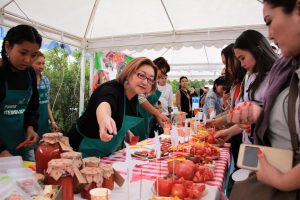
Seed-guardian network members’ meeting © ADI
Guinée Développement Rural et Environnement (GUIDRE) is a non-profit organisation supporting activities in rural Guinea aimed at strengthening community capacities towards biodiversity protection, health, education and governance.
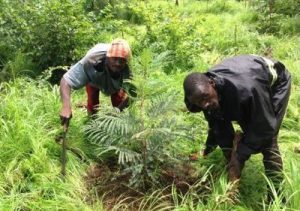
In the forest of Dalafini, CR of Beindou for the assistance of a regeneration assisted with the parkia biglobossa © GUIDRE
Green Development Advocates (GDA) is a non-profit organisation in Cameroon with the aim of contributing to the sustainable development of African rainforests and to promote the cultures, rights, interests and needs of Indigenous peoples and local communities, most notably through community-based forestry with the Pygmy Indigenous people.
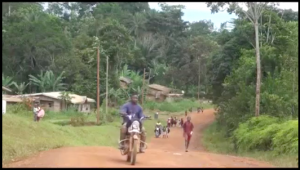
Equinox video report on Facebook © Green Development Advocates
Institute for Sustainable Development Strategy (ISDS) is a non-profit organisation in Kyrgyzstan established to protect bio-cultural diversity through a combination of innovative approaches and traditional ecological knowledge. It has supported 136 grassroots initiatives and the development of a regional peer-learning network of local communities in Central Asia (“Nasyat”).

© ISDS
Prayatna Samiti is a non-profit organisation established in 1989 in the State of Rajasthan, India to support local communities, mainly from the Meena tribe, to form their own governance institutions in order to manage their pasturelands collectively. These institutions in turn establish management plans and ensure equal access to water and fodder for all members of the community.

Community women harvesting fodder from the community conserved area at Malon ka Gurha village in Udaipur (Rajasthan, India) © Prayatna Samiti
Center for Conservation and Development of Sustainable Ecosystems (ZIPAK) is a non-profit organisation dedicated to nature conservation and development of customary land management systems in Iran. ZIPAK has solid experience in community-based natural resources management, as well as protected and conserved areas management, GIS and participatory planning, sustainable livelihoods, bio-cultural diversity conservation and related legal and legislative issues in Iran.
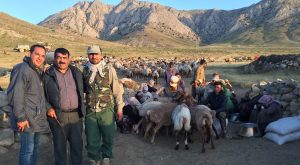
FPIC program in the procedure of Kopet Dag Biosphere Reserve Nomination in UNESCO © ZIPAK
17 Honorary member nominations
We have also communicated their nominations to the following individuals, inviting them to become Honorary members of the Consortium:
Alejandra Pero (Argentina/US) nominated by Terence Hay-Edie, Honorary member, and ICCA Consortium Member SAVIA: has experience working with the UNDP ICCA Global Support Initiative and in the United Nations World Food Programme, capacity-building within organisations, policy and programme support.
Dr. Anita Heim (Finland) nominated by Aili Pyhälä, Honorary member: experience in Namibia with the Khwe San people inside Bwabwata National Park over the past 5 years, focused especially on local food system improvement.
Dr. Attila Paksi (Finland) nominated by Aili Pyhälä, Honorary member: his PhD thesis was on “Surviving ‘Development’ : Rural development interventions, protected area management and formal education with the Khwe San in Bwabwata National Park, Namibia” and is a board member of the International Society of Ethnobiology.
Fatimath Saeedha (Maldives) nominated by Kalpavriksh, ICCA Consortium Member: National Coordinator of the GEF Small Grants Programme in the Maldives, with experience in community-based conservation of threatened ecosystems and species initiatives and sustainable agriculture and fisheries projects.
Fatma Zolfaghari Koohi (Iran) nominated by Cenesta, ICCA Consortium Member: as a member of the Qashqai tribal confederacy, filmmaker and editor, Fatma explores the empowerment experiences of local communities, sustainable development, environmentalism and women’s empowerment.
Dr Francisco Xavier Martínez Esponda (Mexico) nominated by Mexico ICCA network: experience with research projects and practical guides, especially for Litiga, an organisation that deals with strategic conflicts related to human rights and CEMDA (Centro Mexicano de Derecho Ambiental – Mexican Centre of Environmental Law) to create and support processes that defend Indigenous peoples’ and local communities’ territories.
Ganbaatar Bandi (Mongolia) nominated by Sutej Hugu and Terence Hay-Edie, Honorary members: National Coordinator of the GEF Small Grants Programme in Mongolia for 18 years, with work focusing on restoring customary approaches and informing people of the Buddhist doctrine and practice in the conservation of natural resources.

Ganbaatar Bandi – Permission to use photo from Ganbaatar Bandi.
Isa Elegbede (Nigeria) nominated by Melanie Zurba, Honorary member: a member of the Indigenous Yoruba people of Epe, Nigeria, with interdisciplinary academic, research, and development work that focuses on Indigenous studies, environmental resources, sustainable livelihoods, food security and participatory research methods.
Jessica Stewart (UK) nominated by Heather Bingham, Honorary member: manages the global ICCA Registry and leads the work on ICCAs at the UNEP World Conservation Monitoring Centre.
Dr. Kyle J. Shaney (USA) nominated by Mexico ICCA network: focuses on applied ecology and biogeography, wildlife management, conservation and restoration. He collaborates with the ICCA network in Mexico, creating a bridge with local communities and Indigenous peoples from the north of the country.
From left to right: Isa Elegbede, Dr. Kyle J. Shaney, Michel Forst, Prof. Scott Simon, Sabine Maria Schmidt, Dr. Víctor Manuel Toledo Manzur.
Mehana Vaughan (Hawai’i) nominated by Kevin Chang, Honorary member: Assistant Professor in the Department of Natural Resources and Environmental Management at the University of Hawaiʻi at Mānoa . Her work focuses on enhancing communities’ abilities to care for and govern the places that nourish them. In Hawai’i, it has significantly helped increase community empowerment in natural resource management.
Michel Forst (France) nominated by Holly Jonas, ICCA Consortium Global Coordinator: former UN Special Rapporteur on the situation of human rights defenders with extensive experience in the field of human rights, defenders, the rights of children with disabilities, extreme poverty, and the elderly.
Prof. Scott Simon (Québec) nominated by Sutej Hugu, Honorary member: dedicated to the study of Taiwan’s Indigenous peoples and recent research in Indigenous rights, sovereignty, human-animal relations, hunting, ontologies, and legal pluralism.
Sabine Maria Schmidt (New Zealand) nominated by Sutej Hugu and Stan Stevens, Honorary members: experience and interests range from protection for the Antarctic to supporting mobile pastoral communities in Mongolia, especially toward community-based conservation and representation in international events on mobile pastoralism and conservation.
Dr. Víctor Manuel Toledo Manzur (Mexico) nominated by Mexico ICCA network: a scientific researcher dedicated to studying ethnoecology, especially the relationships between Indigenous cultures and their natural environment in Mexico, Latin America, and the world. He recently served as Secretary of the Environment for the Mexican government, where he moved the defence and protection of biocultural diversity in Mexico into a position of greater prominence and urgency.
Dr. Yolanda López Maldonado (Mexico) nominated by Mexico ICCA network: a Maya Indigenous scholar in Human Ecology and Human Geography with work focused on community-based natural resource management, culture and conservation, and governance of natural resources and protected areas.

“Moment of dialogue and reflection between Daniel and me, shortly after he explained to me the Andean principle and philosophy of well-being: Sumaq Kawsay” © Alexis Suarez
